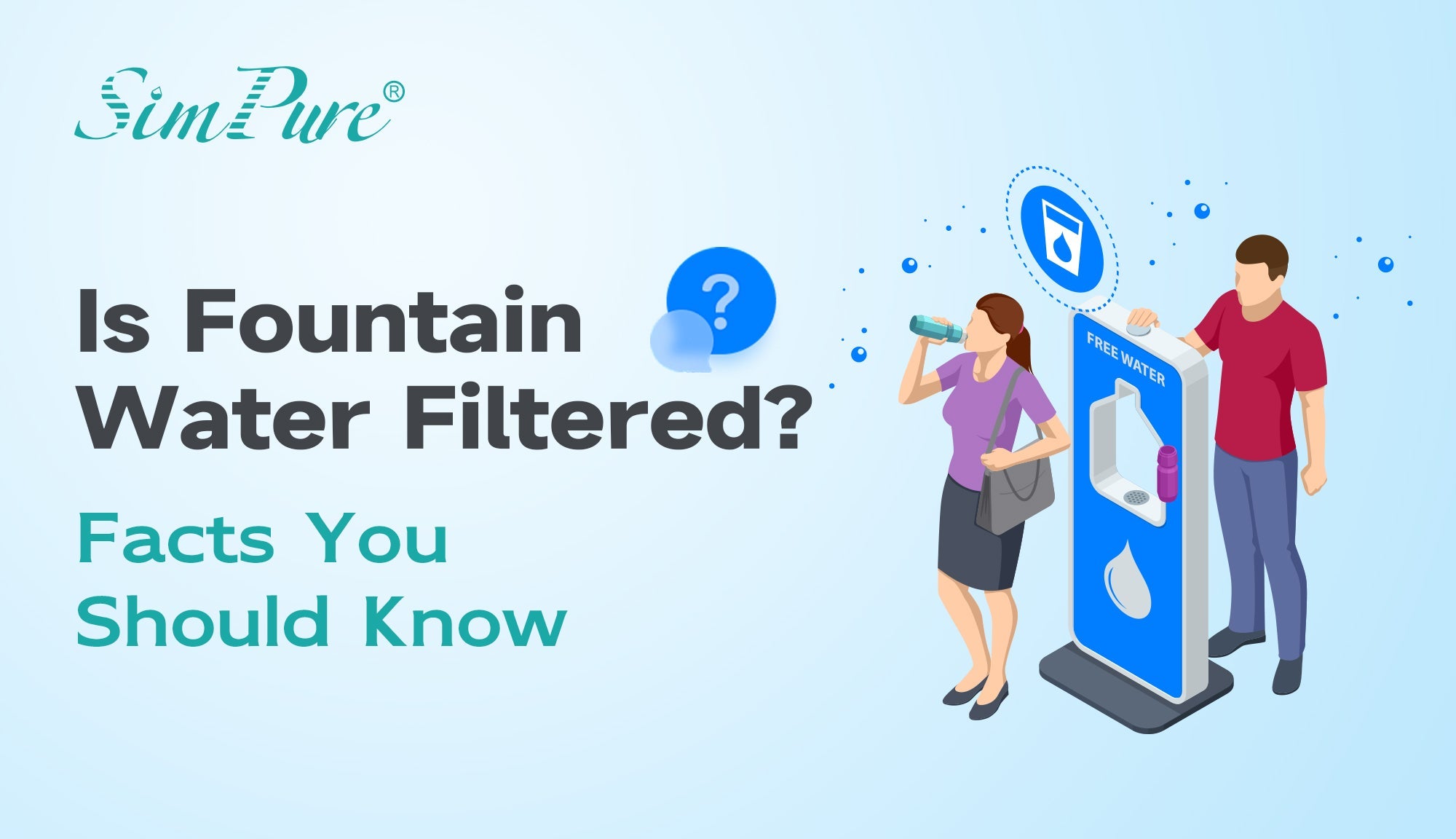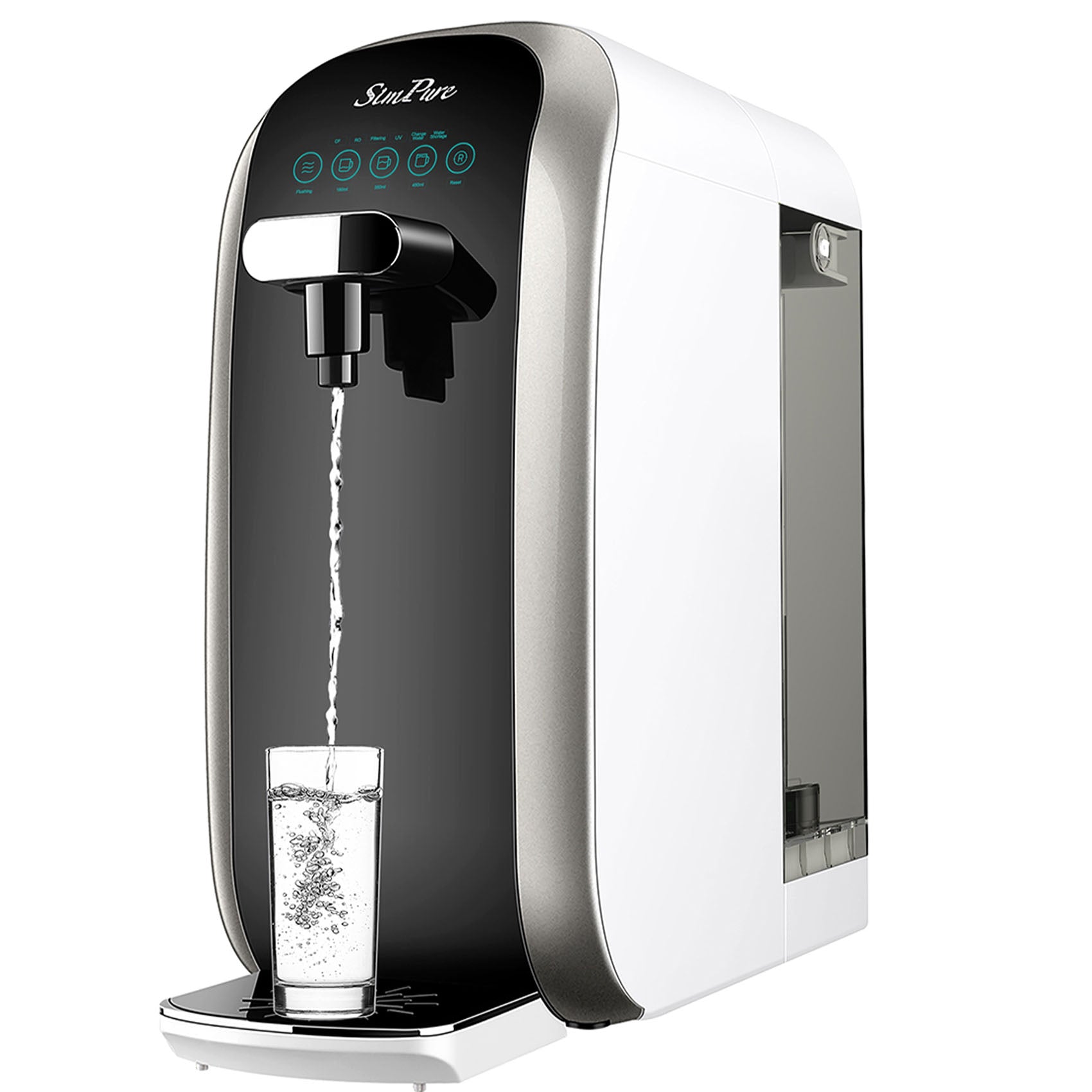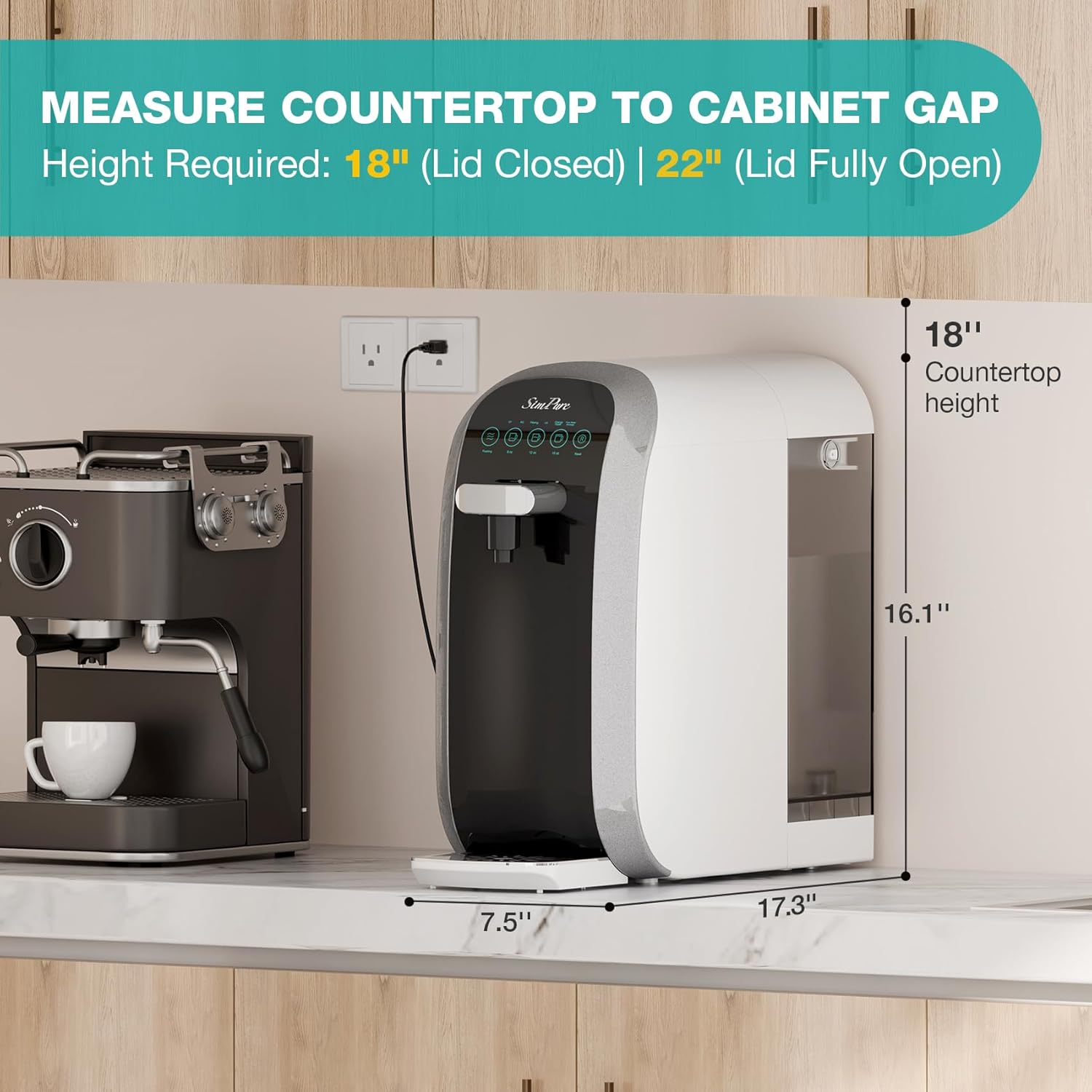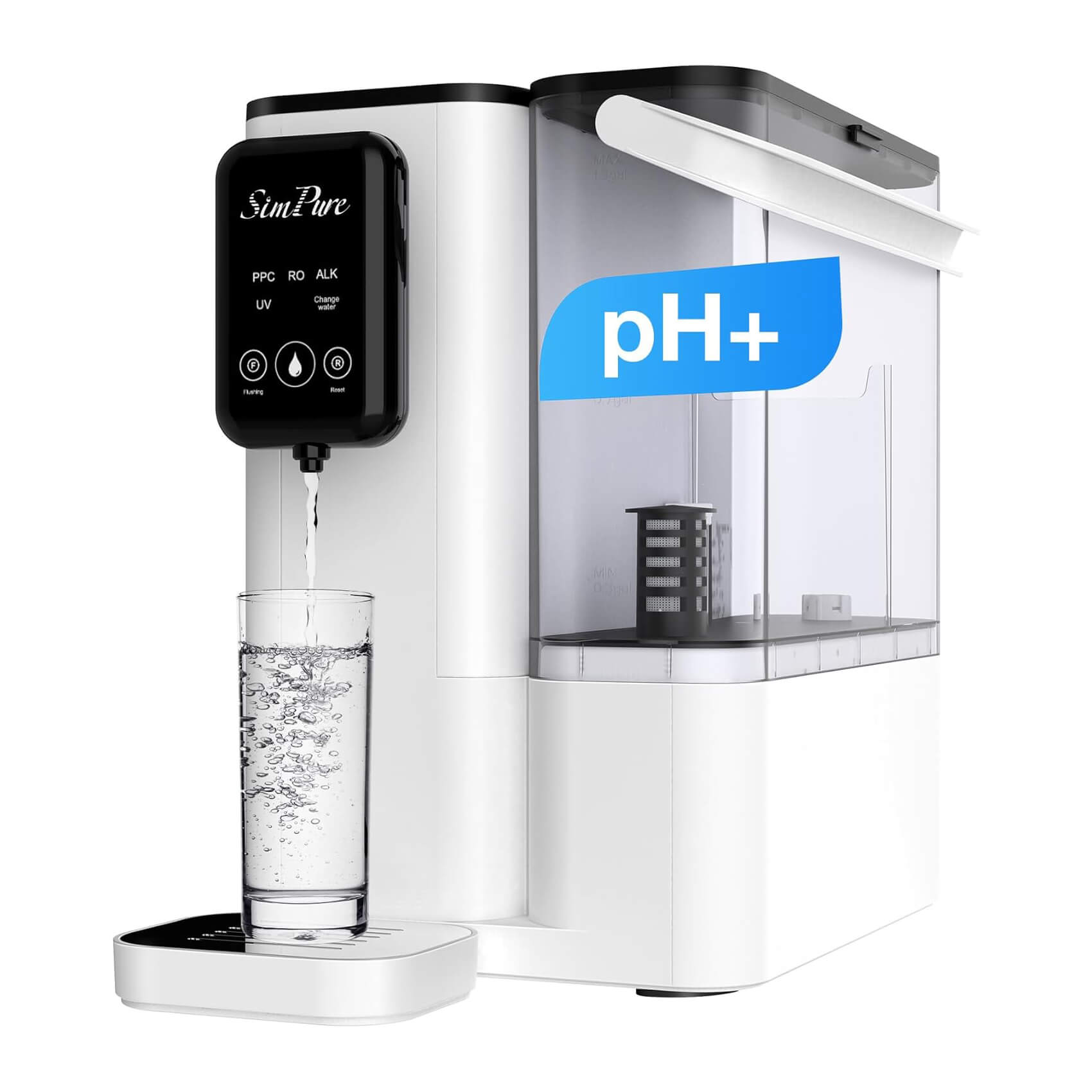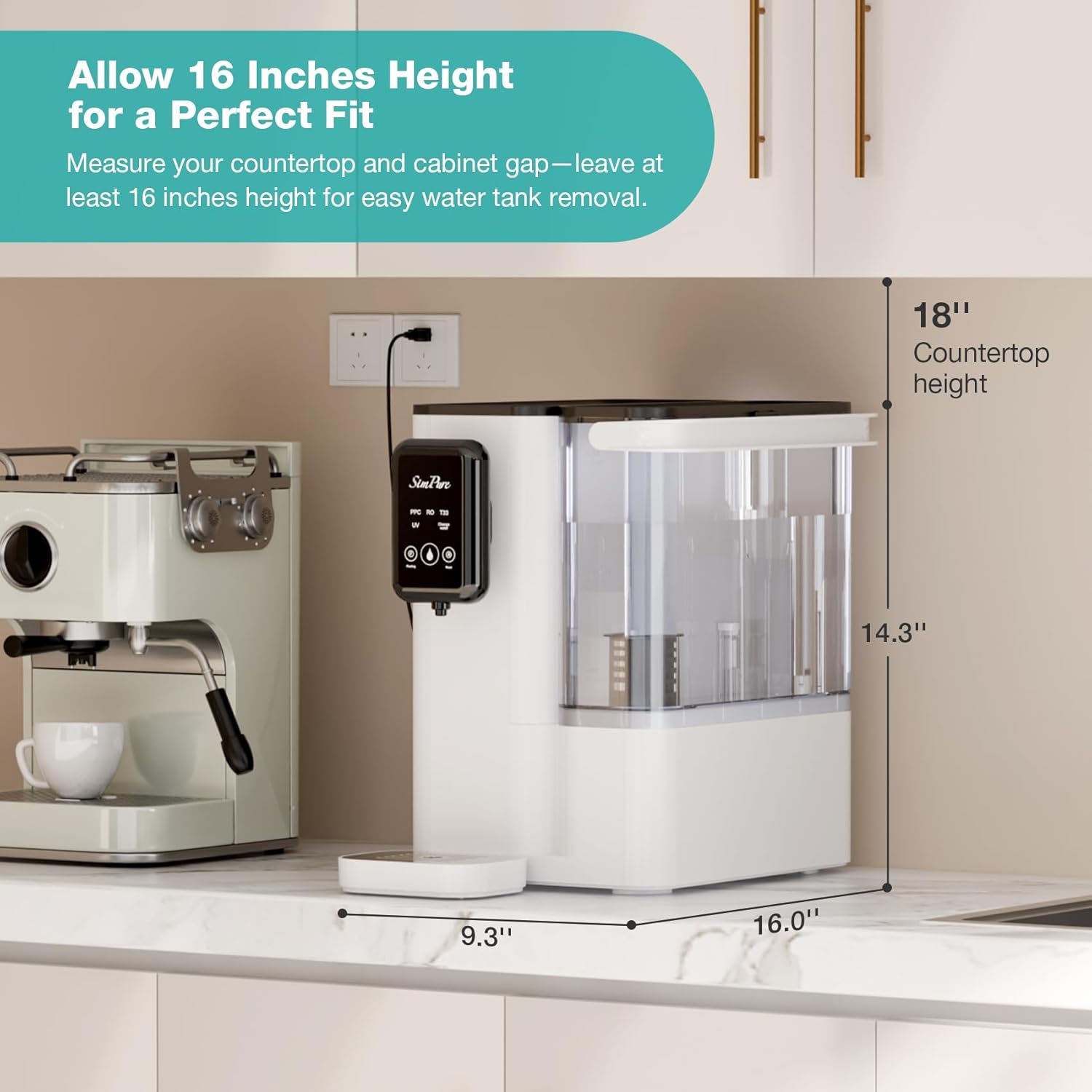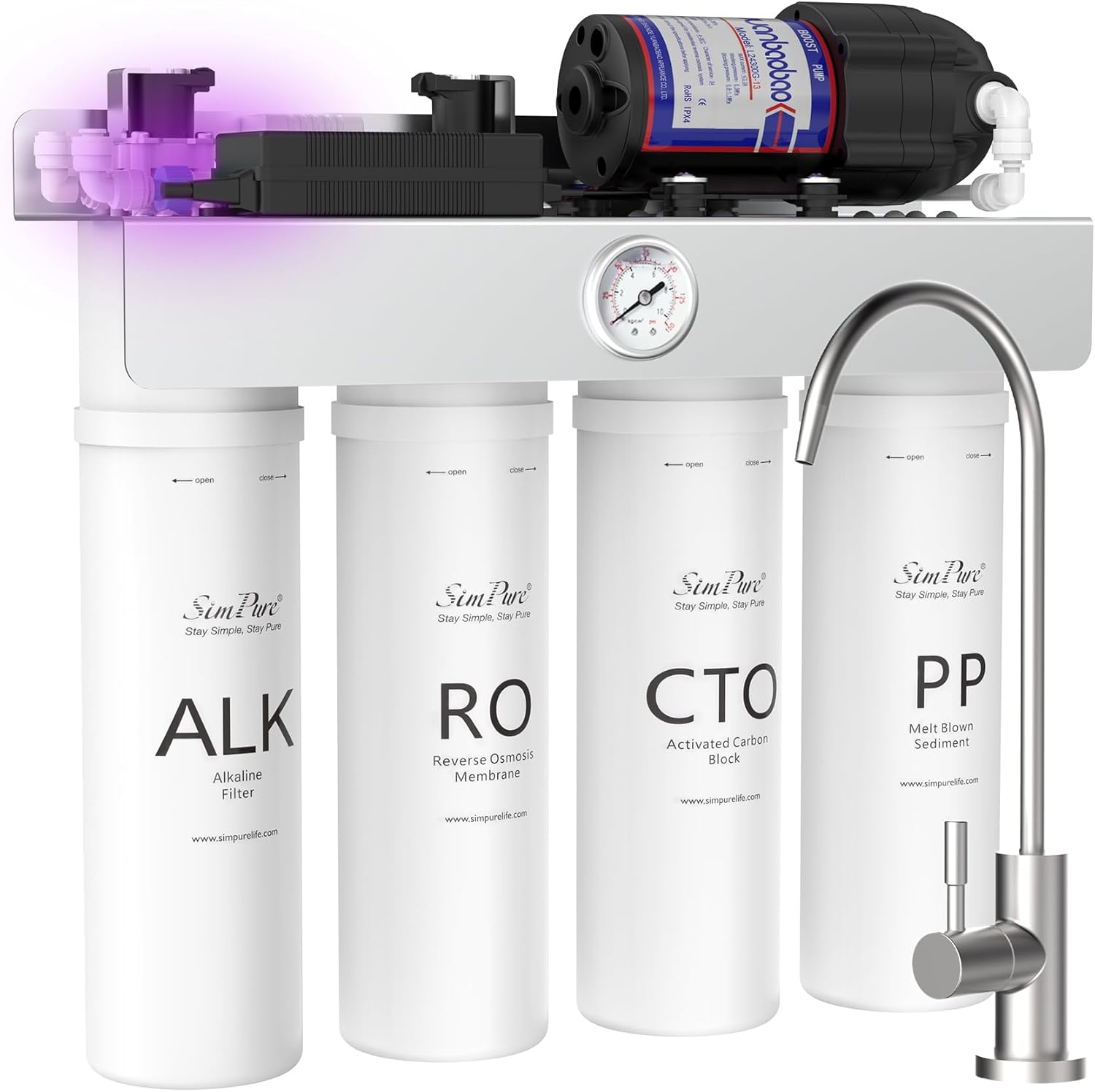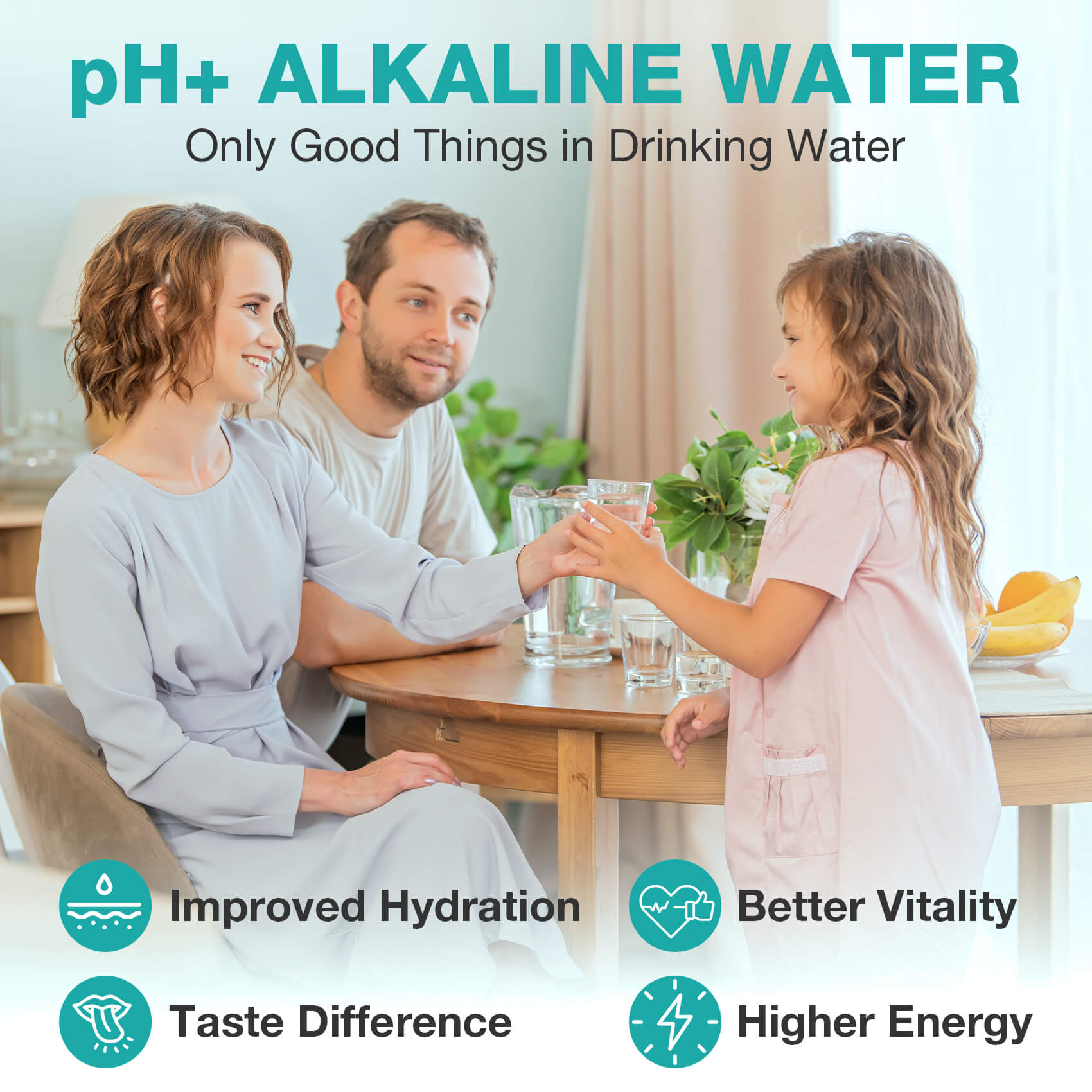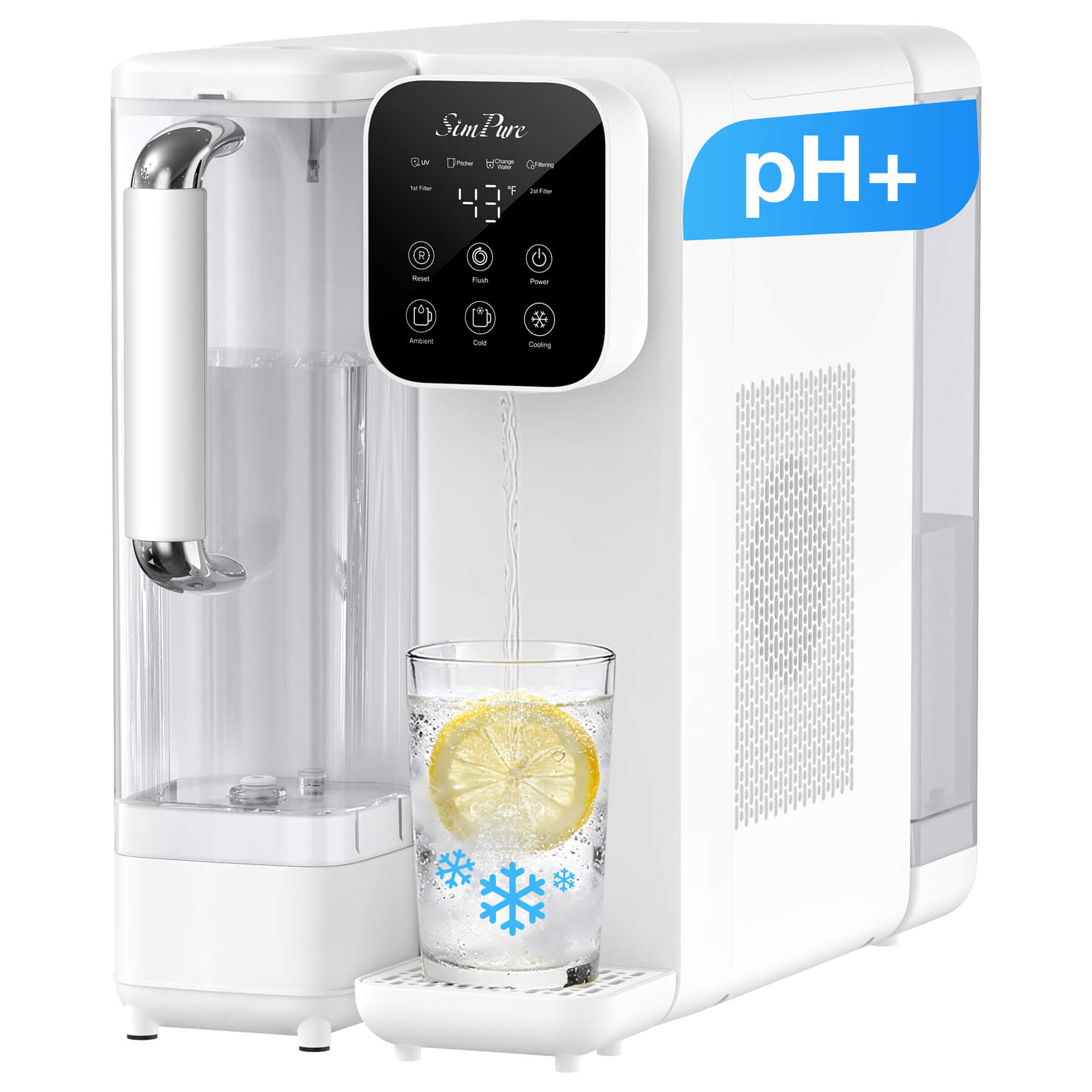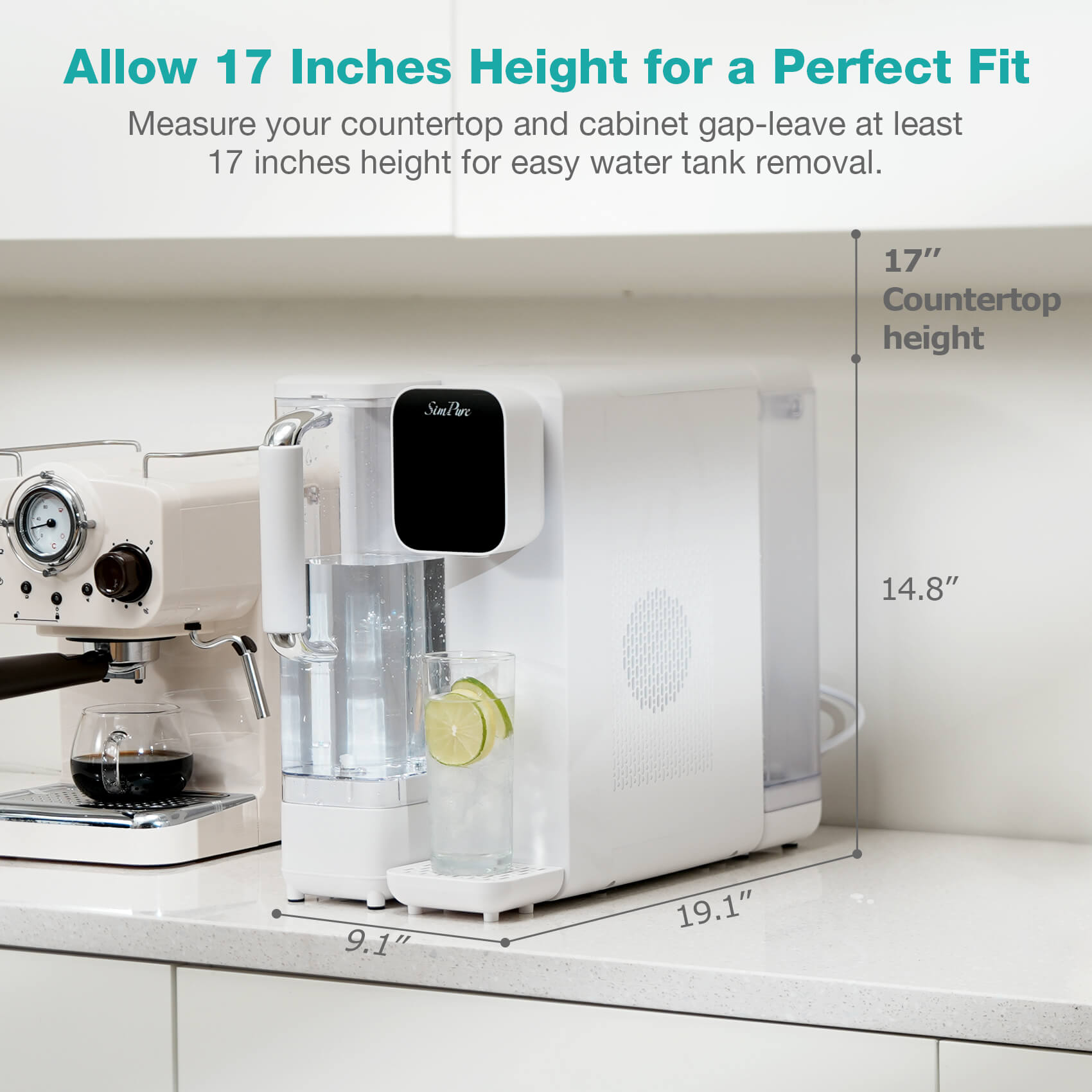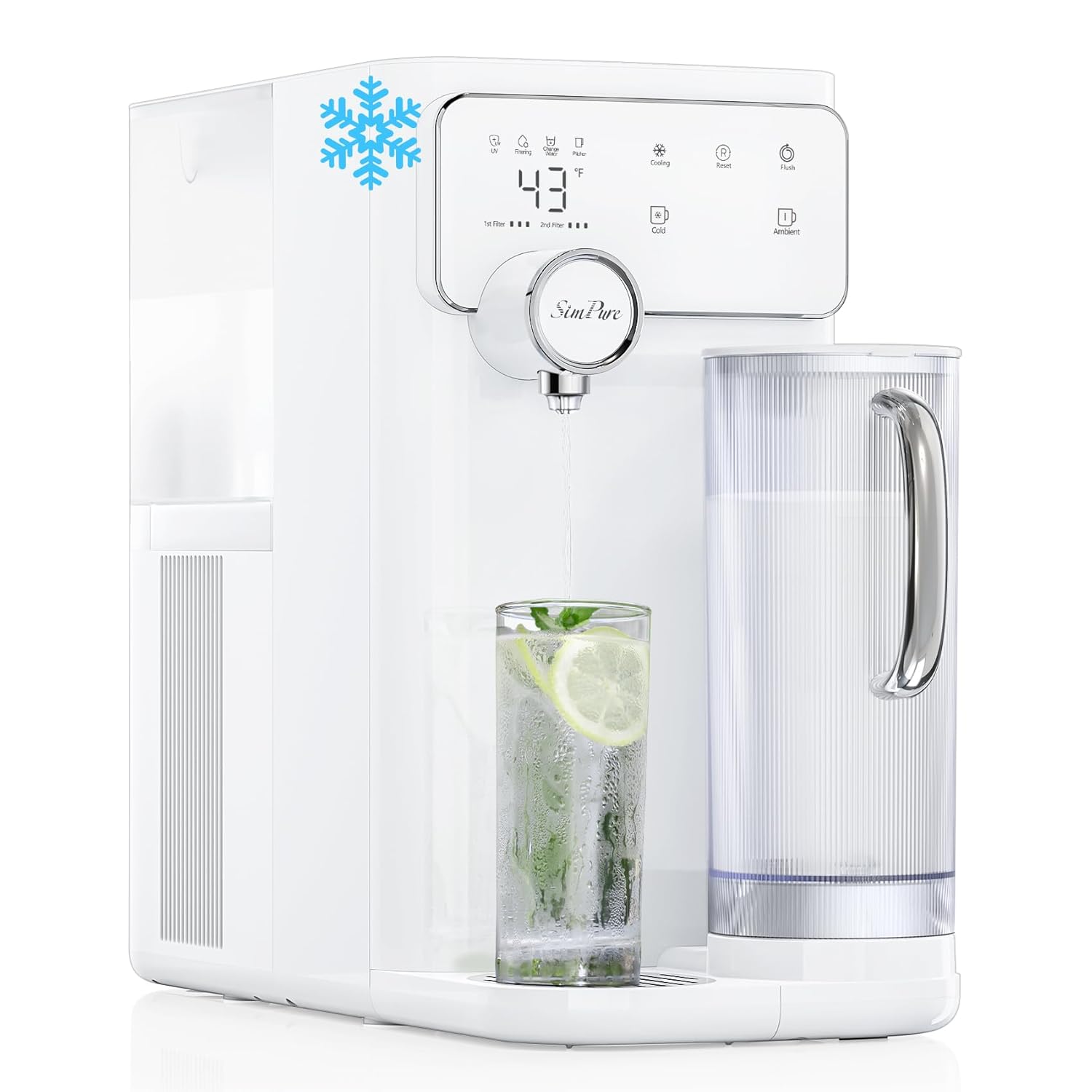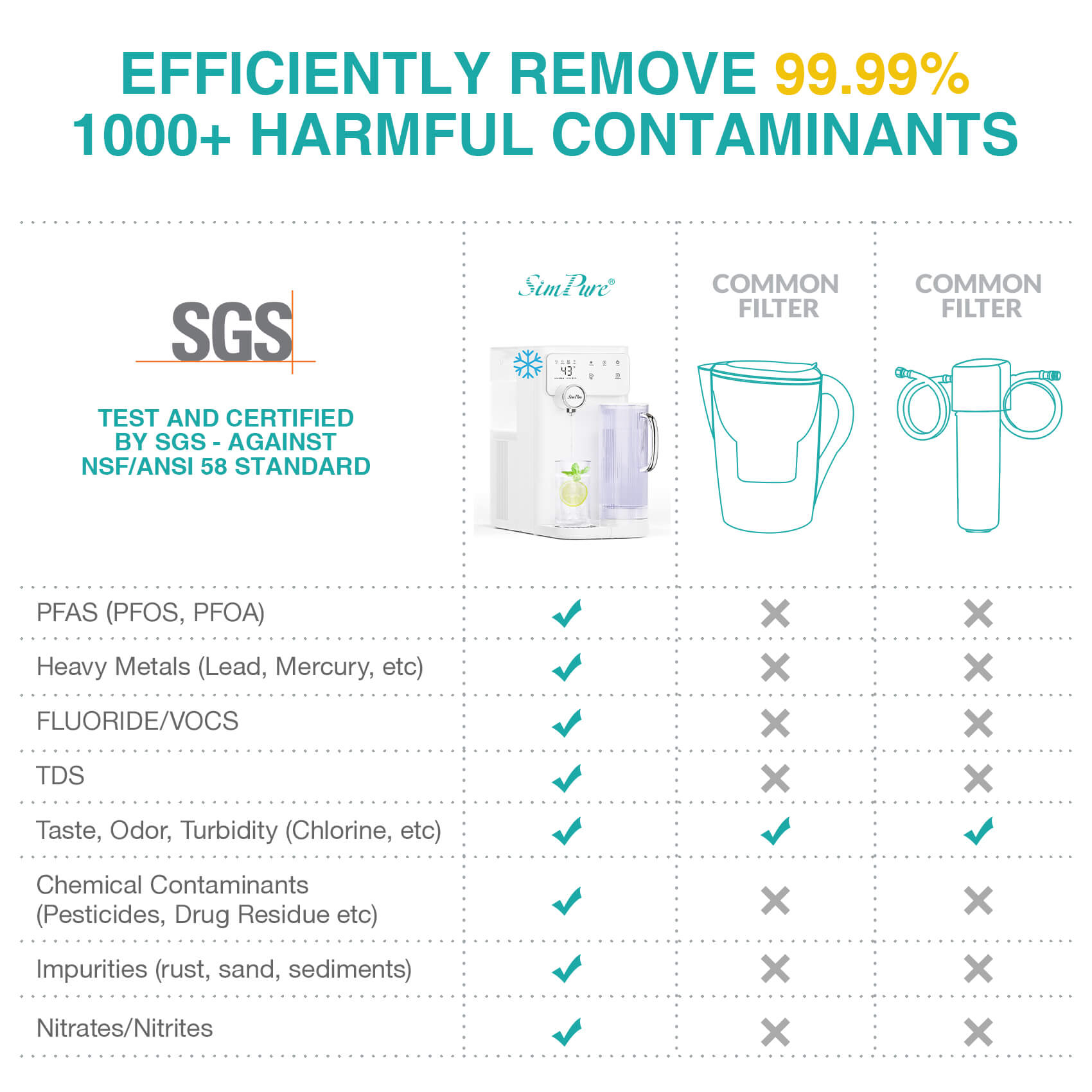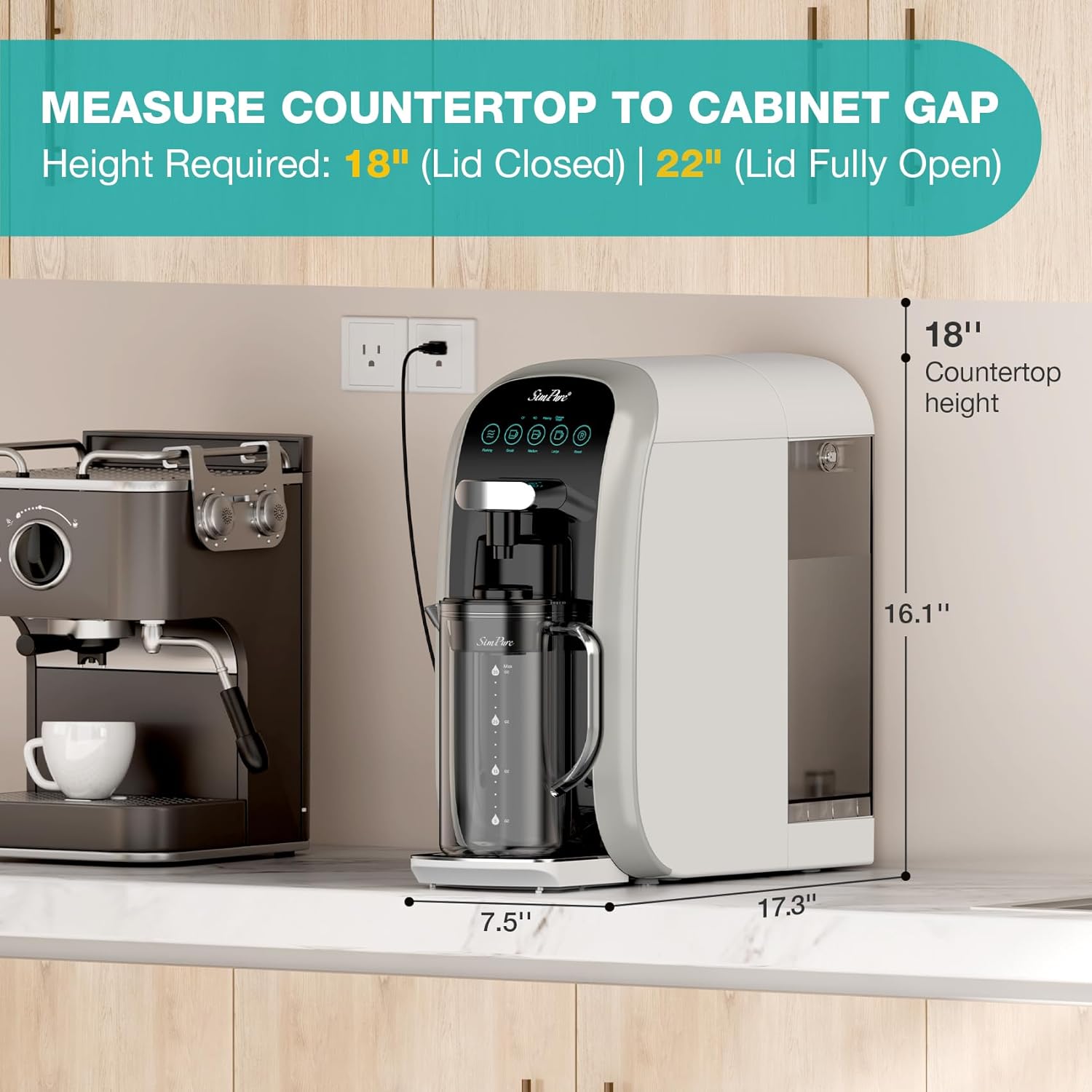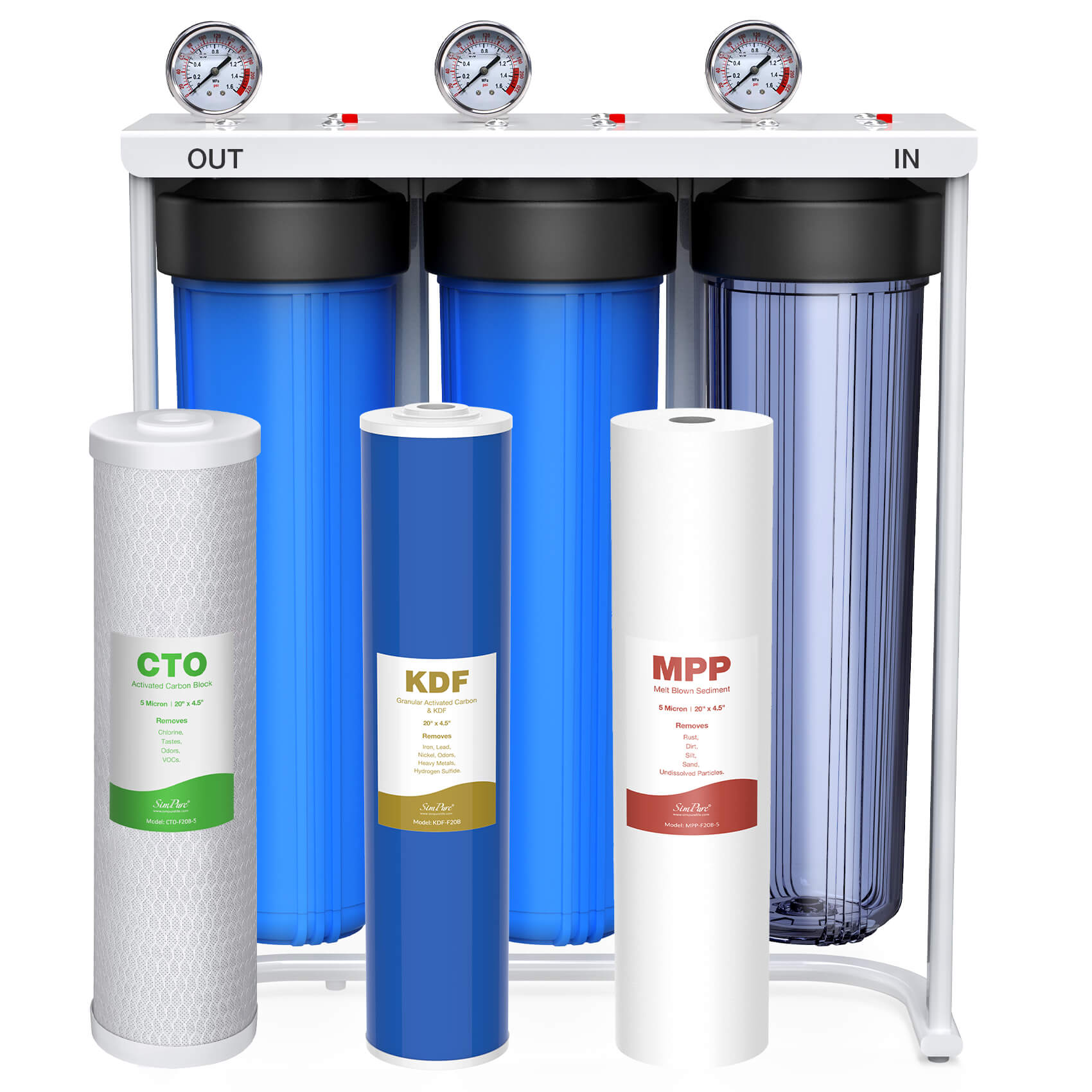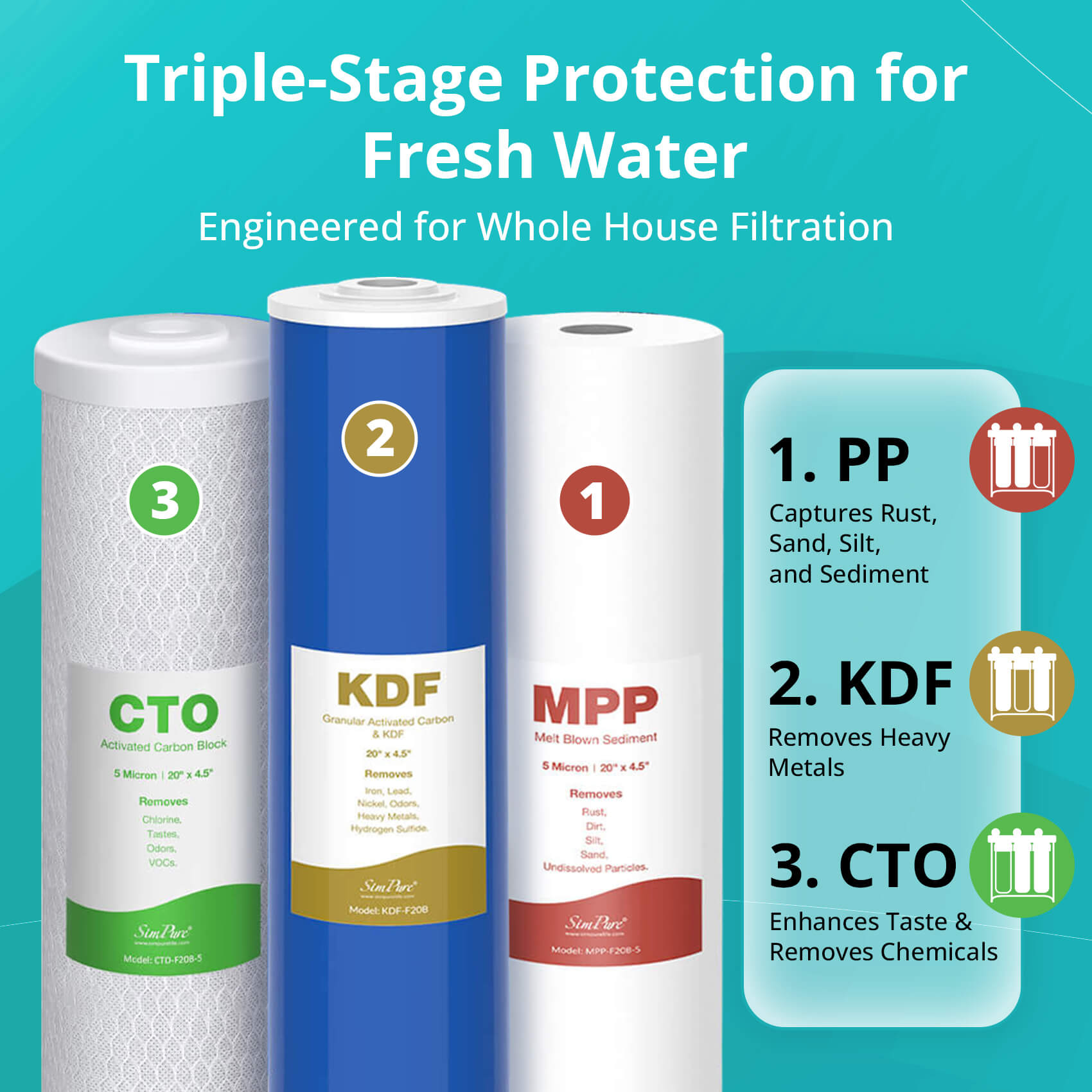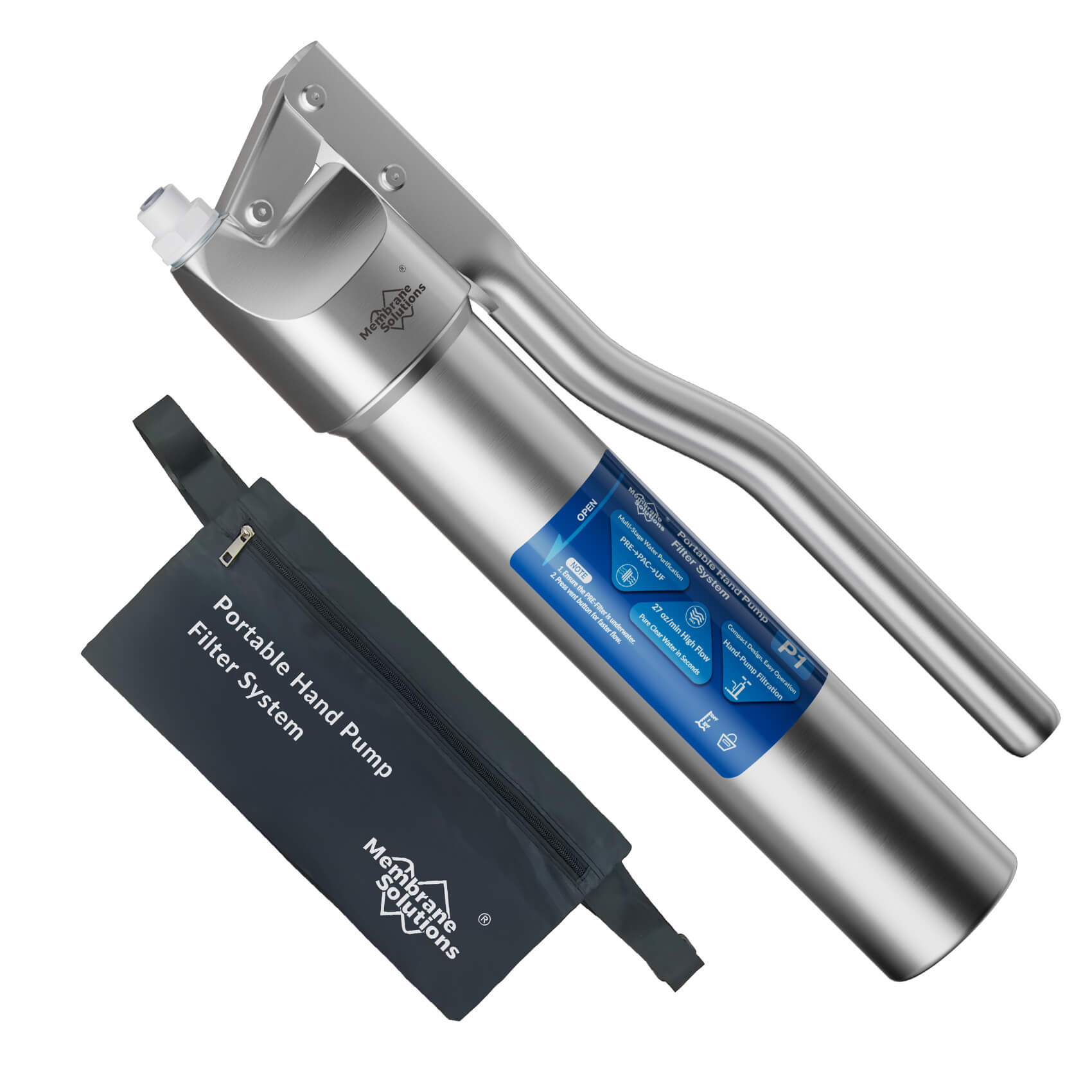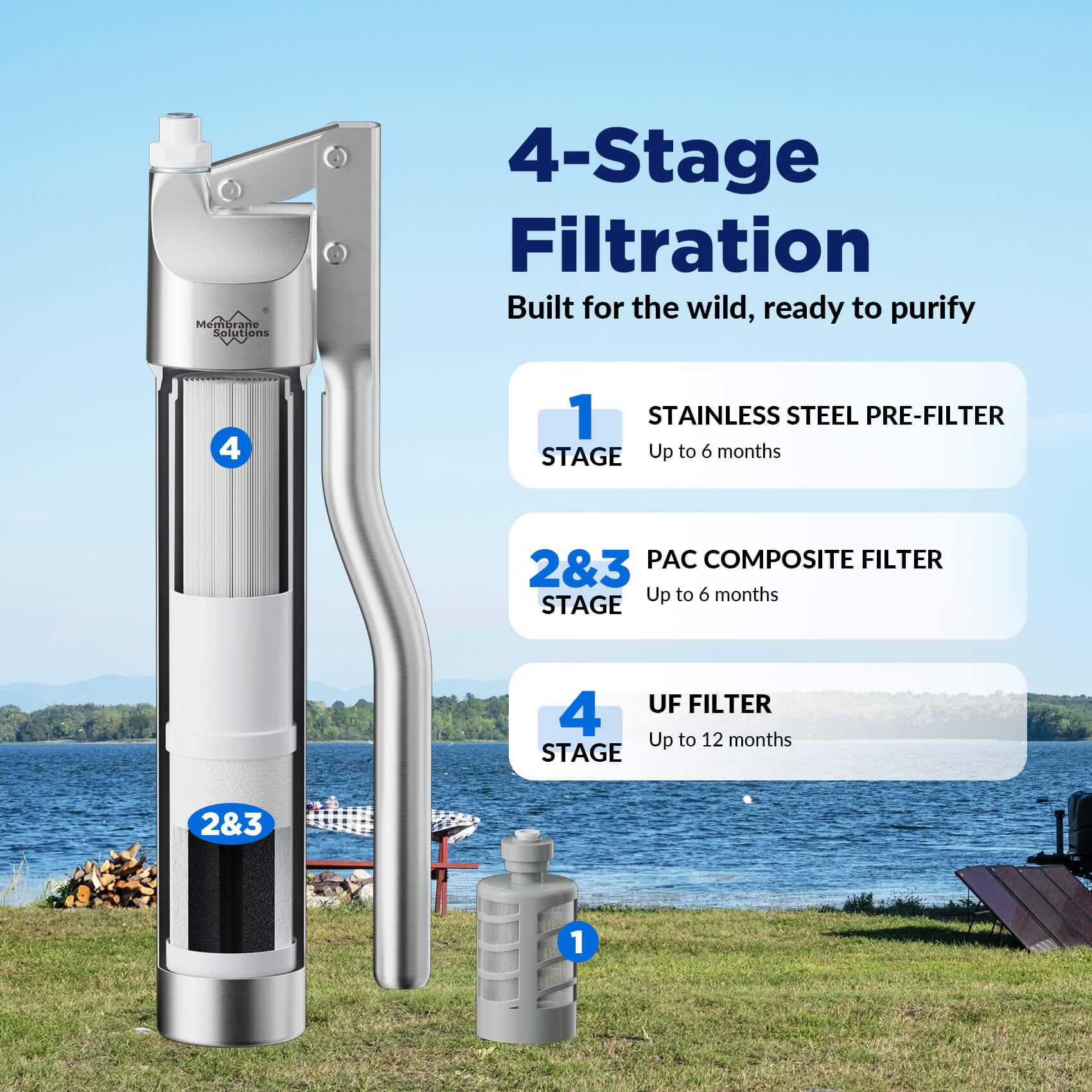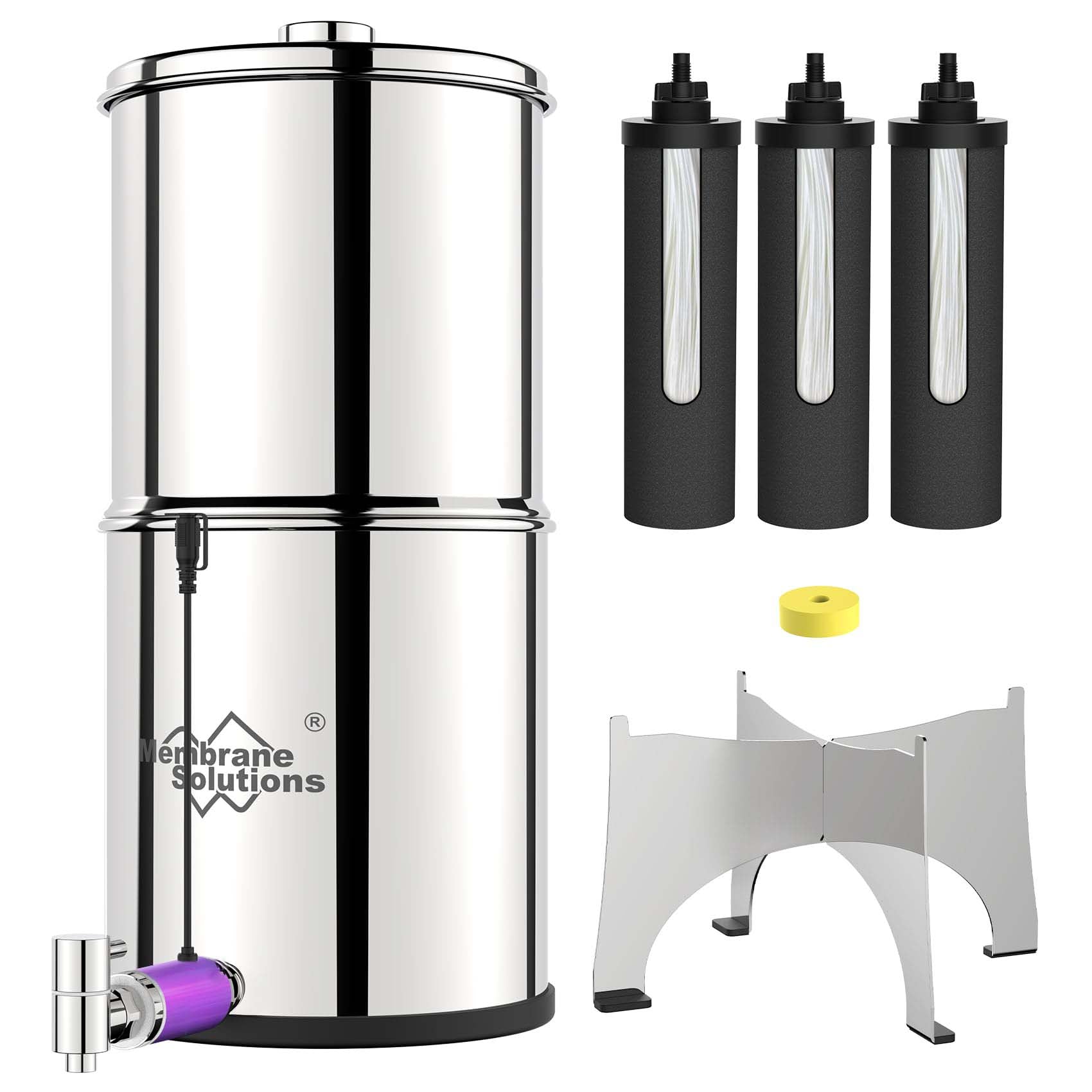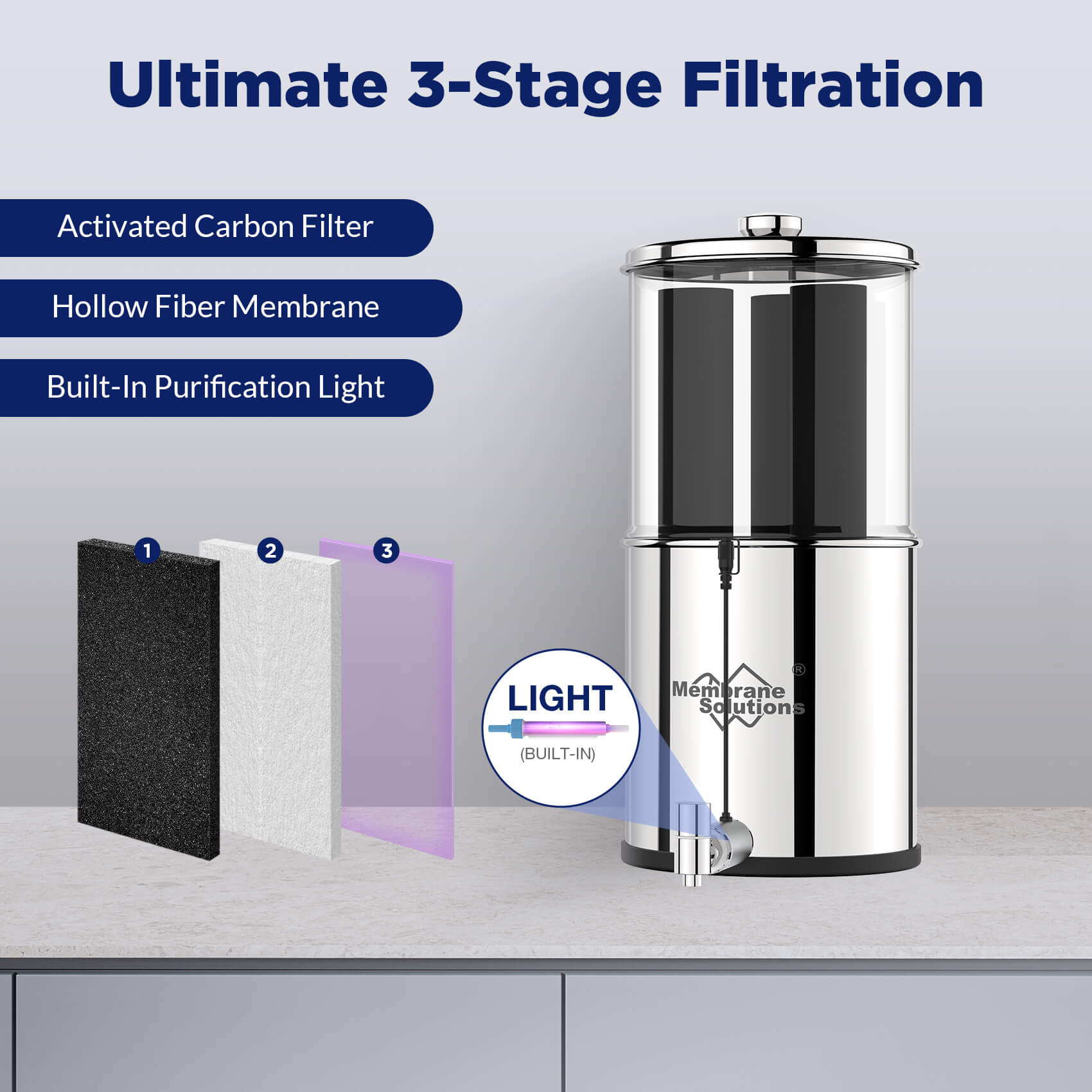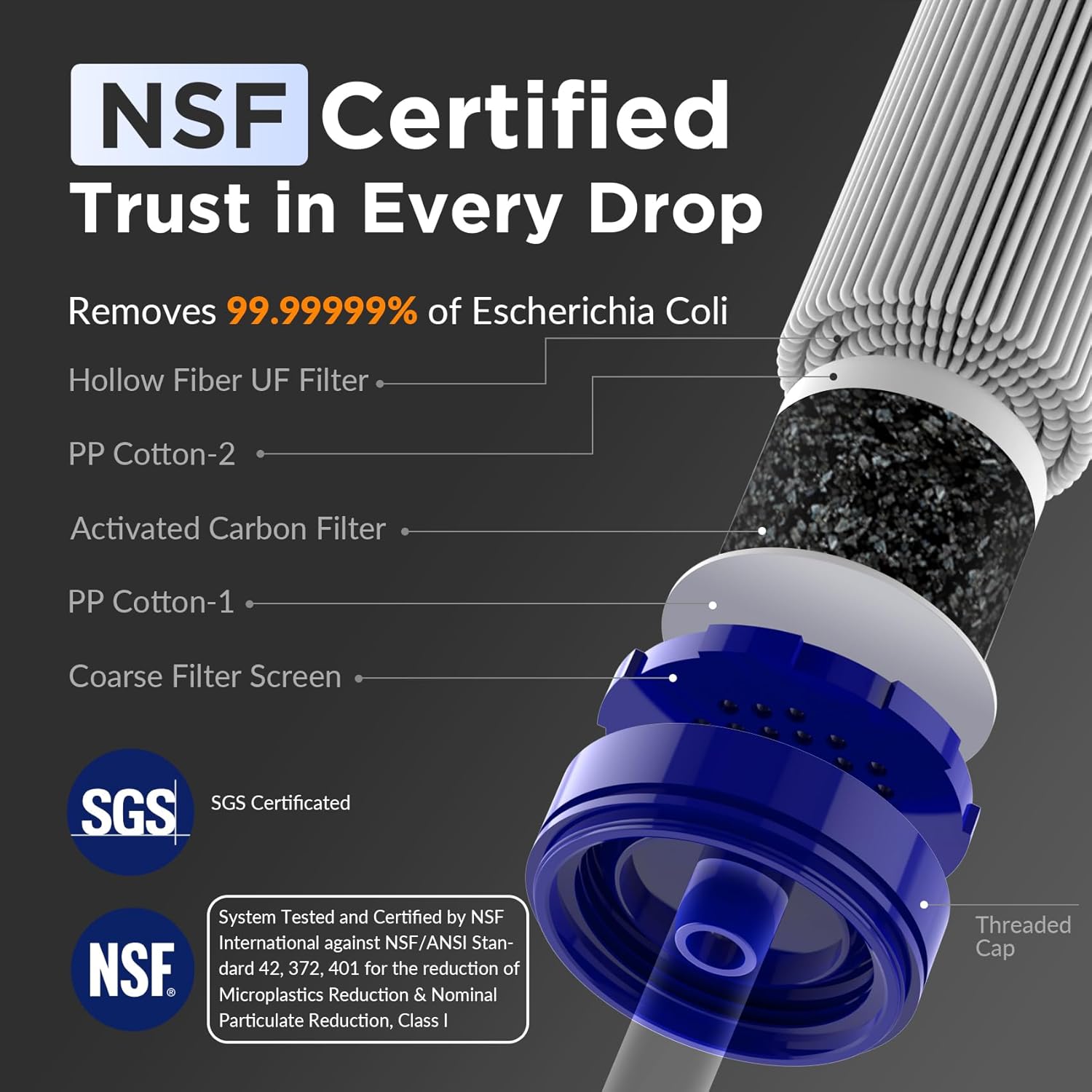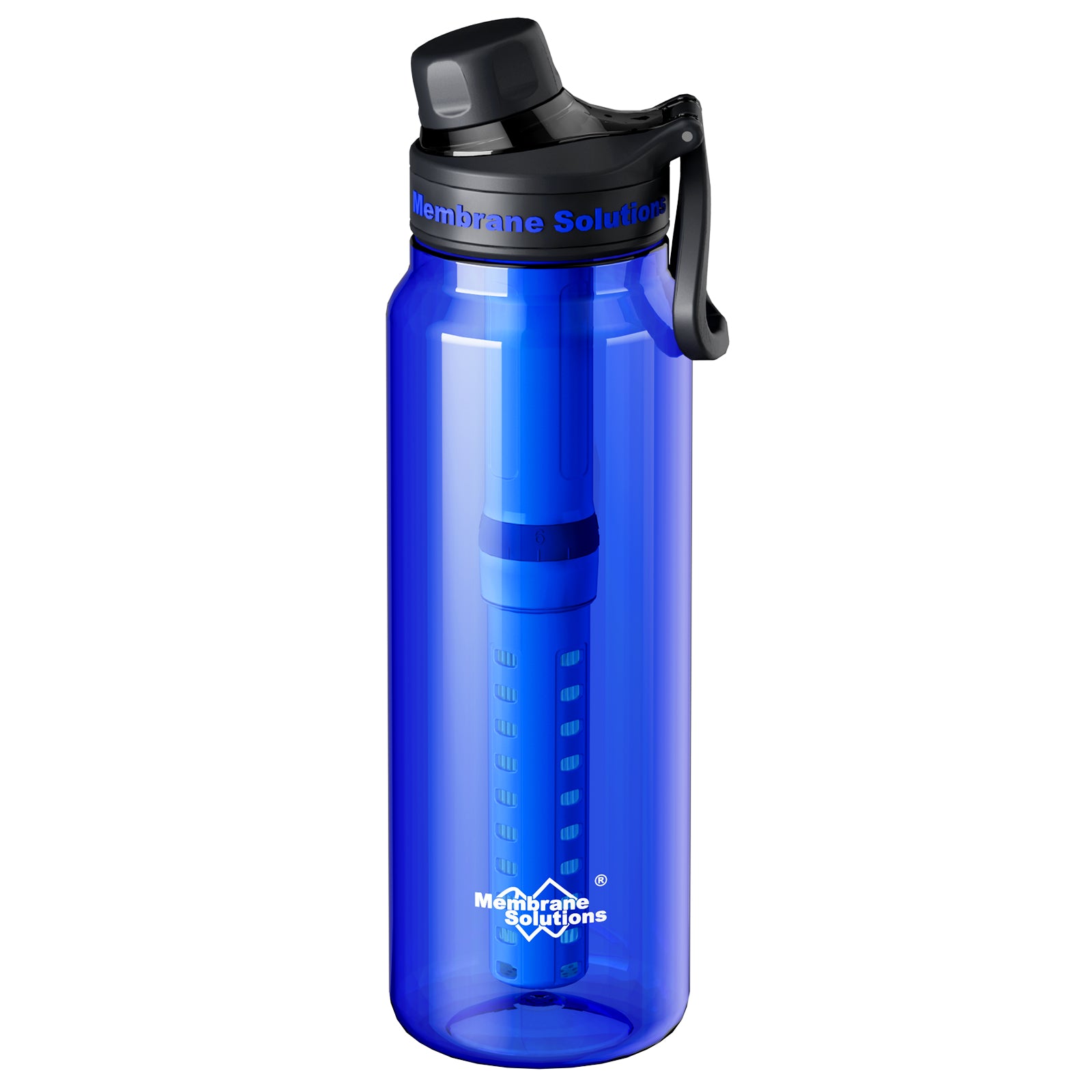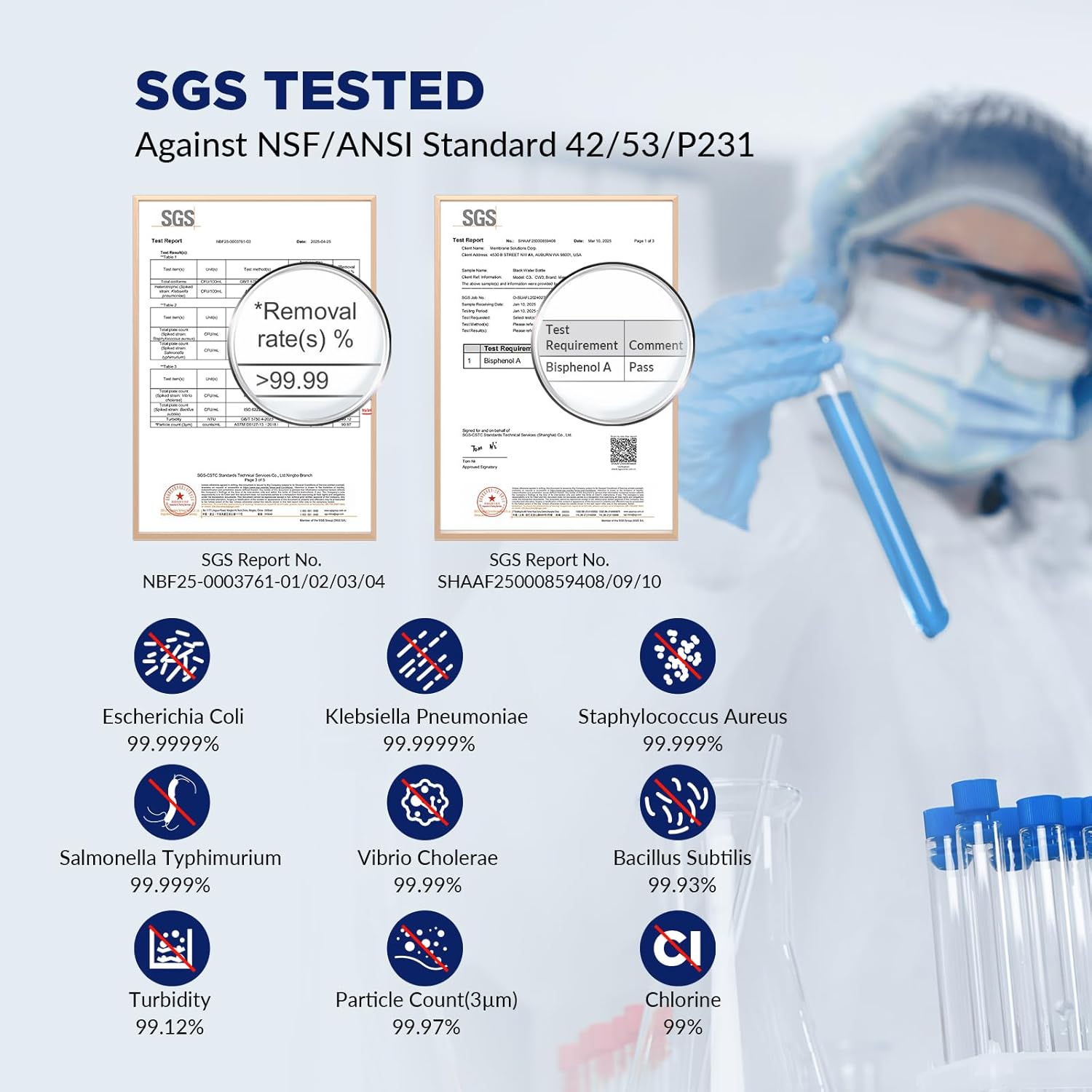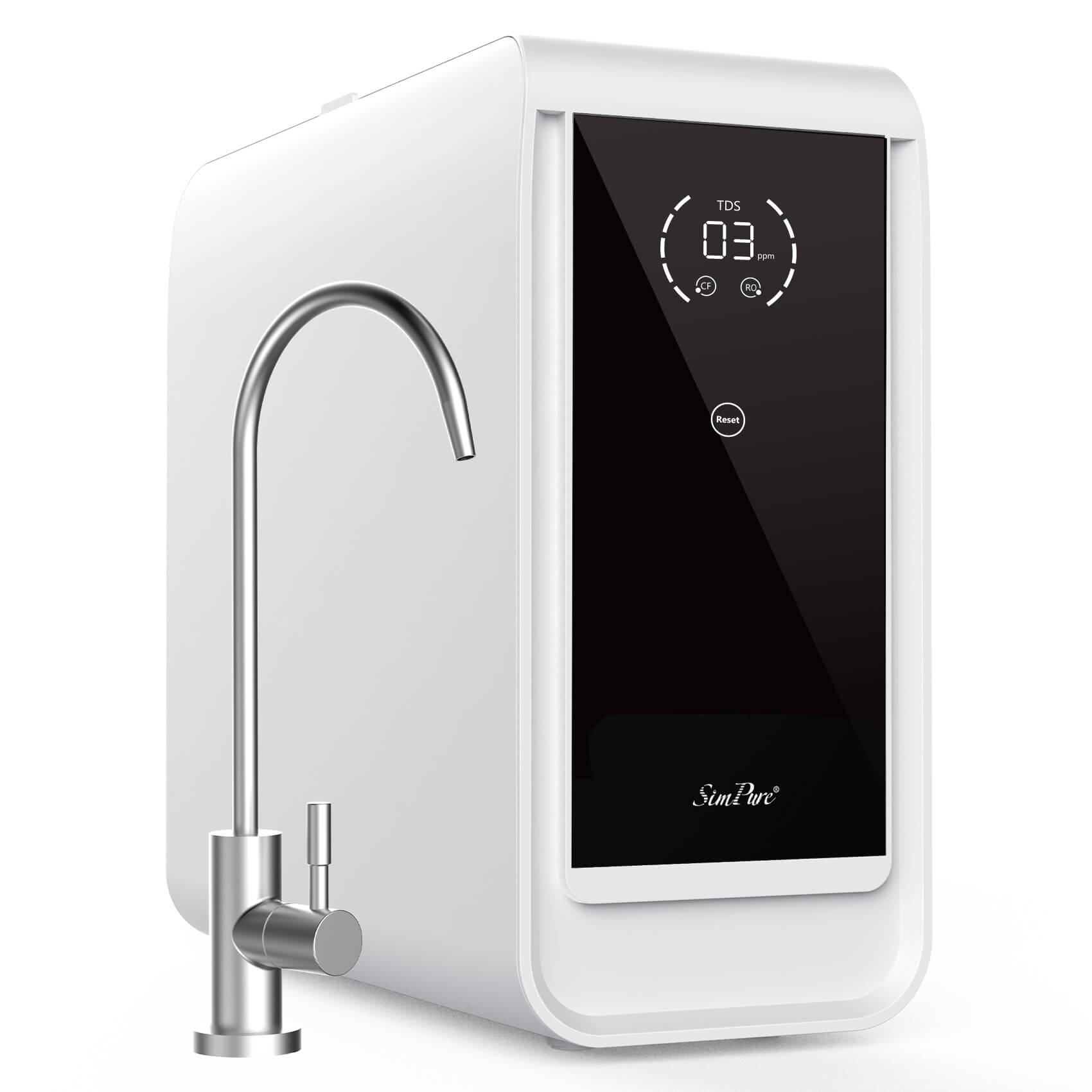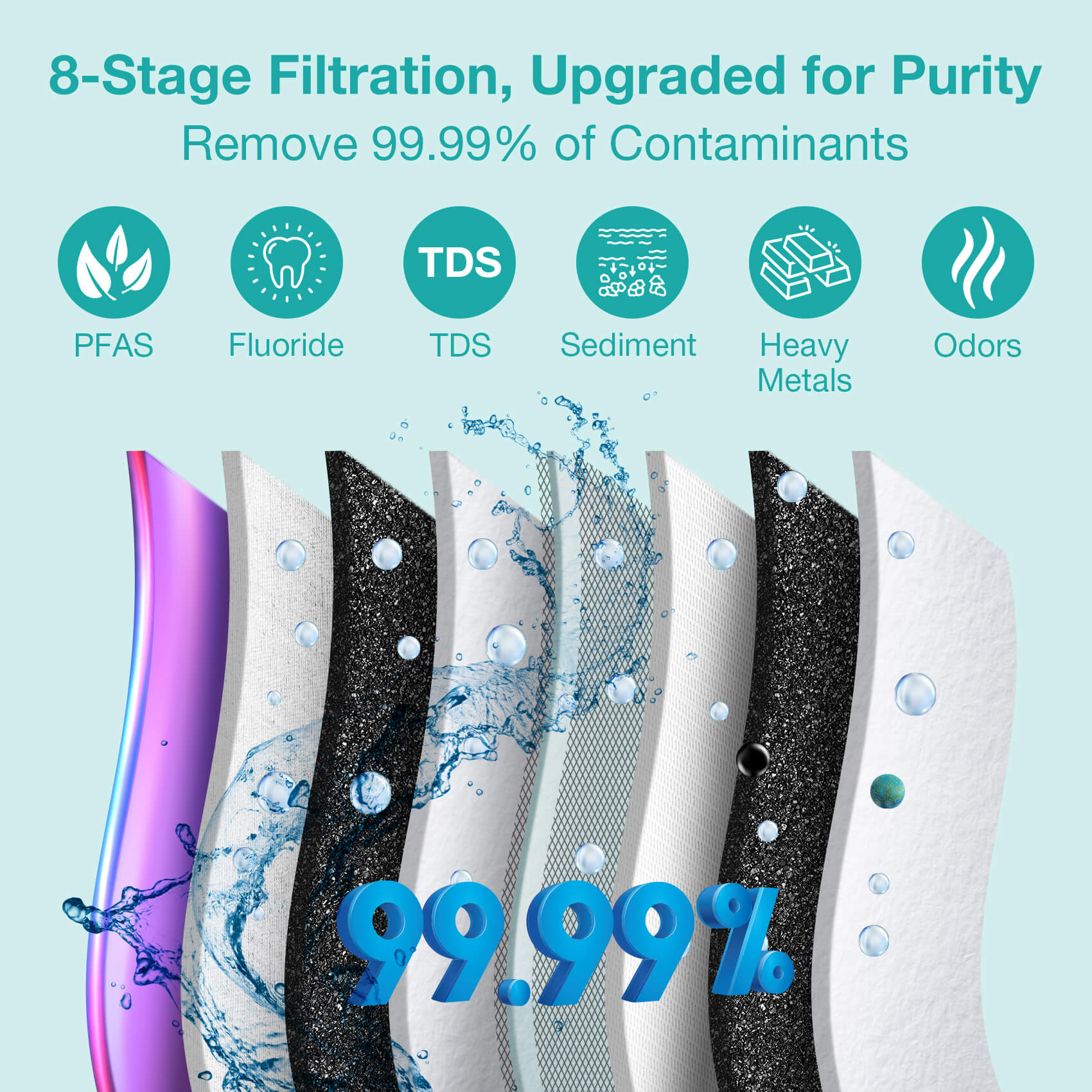Water fountains have been around since the 1800s and have been a convenient source of water in public places. However, with the growing concern of water safety, the public water fountains have gotten a bad reputation in the last few years and as a result, many people are skeptical about drinking water from them.
According to a Gallup survey, 77% of Americans worry about water contamination, making them more inclined to drink bottled water rather than drinking from a water fountain. 1 This sparks the debate around whether is fountain water filtered.
Knowing whether is water fountain water filtered is important to ensure health and safety. In this article, we will dig deeper into the dilemma of drinking water from public water fountains and see whether is water from a water fountain filtered or not.
1. What is Water Fountain Water?
Fountain water is mainly tap water that undergoes treatment for purification and it dispenses fresh water every time. Antibacterial and algae inhibitors are added to the fountains to reduce slime or algae buildup. The water in these fountains comes from the municipal water supply or a separate water source designated for drinking purposes. Since the water comes from municipal sources, it undergoes purification methods (such as activated carbon or sediment filters) to make it safe for consumption.

*Picture from: https://www.greenmatters.com
2. Is Water Fountain Water Filtered?
Is water fountain water filtered? To some extent, yes. This is the question that perplexes many. Due to increasing awareness about hygiene and safety measures, people are more reluctant to drink water from water fountains. In short, fountain water is somewhat filtered. But the filters are carbon filters that only reduce the taste and odor of chemicals found in public water but are not powerful enough to remove bacteria, or hard metals from the water. 2
Water in water fountains comes from municipal supply and municipal water contains chlorine to kill bacteria. While this is a good sign, ingesting chlorine in high amounts can cause side effects. Municipal water also contains trace amounts of other contaminants like lead, fluoride, or nitrates which render water a bit unsafe for consumption.
Also, water in a public water fountain may sit stagnant for hours which creates a potential breeding ground for harmful bacteria.
Comparison with Tap Water
While both water fountain water and tap water are filtered, their filtration quality and regulatory standards differ which makes one safer than the other. Let’s take a closer look at both types.
Water fountains usually comprise sediment or activated carbon filters that remove large particles or odor from water, making it safe to drink water. However, these filters are not actually powerful enough to remove microorganisms. On the other hand, tap water is regulated by local or national authorities like the Environmental Protection Agency.
Due to these regulations, tap water undergoes rigorous filtration, such as UV or chlorination at the municipal authority which removes various contaminants, like chemicals, heavy metals, or bacteria. In a nutshell, tap water is more pure, clean, and safer to drink than water fountain water.
3. Is Water Fountain Water Clean?
As the answer to is drinking fountain water filtered is uncertain, let’s take a closer look at whether the fountain water is clean or not. The cleanliness of water fountain water also depends on the type and quality of the filter used in the fountain. If the filters are not replaced on time, they may not effectively filter water. Environmental factors like dust, pollen, or bird droppings may contaminate water and make it unsafe for consumption.
Many studies have found that water fountains are carriers of rotavirus, which is known to cause diarrhea, and norovirus, also known as stomach flu, which causes vomiting and stomach cramps. Moreover, fountain water also carries influenza A which causes sore throat and high fever. 3
Another report from the CDC shows that from 2011-2012, 32 drinking water-associated outbreaks were reported. Among these outbreaks, legionella was the main pathogen that usually comes from the building’s plumbing system and causes legionnaire’s disease, a type of pneumonia. 4
The best practice would be to carry a filtered water bottle with you but you may forget it when you go out and you can’t risk dehydration. The best practice would be to wash your hands thoroughly after using a water fountain.
Also, let the water run for a few seconds before you drink water from the water stream. Never touch your mouth directly to the faucet and if possible, use a refillable water bottle and do not let the bottle touch the water stream opening when filling.
4. Is It Safe to Drink Water From a Water Fountain?
Drinking water from a water fountain can be safe, but it depends on several factors. Water fountains in public places often source their water from the same municipal supply as tap water, which generally meets safety standards set by regulatory bodies. However, the cleanliness of the fountain itself and the presence of a filtration system are crucial considerations.

While water fountains are generally safe to use, unfiltered water fountains might expose you to contaminants such as bacteria, lead, or other pollutants that can pose health risks. The condition and maintenance of the fountain also play a significant role. If the fountain is old, not regularly cleaned, or poorly maintained, the risk of contamination increases. Hence, it is important to invest in a good-quality water filter that provides an extra layer of protection and makes water completely safe for consumption.
-
Benefits of Using a Water Filter
Using a water filter offers several benefits, making them a must-have component of water fountains or taps. A water filter is cost-effective as bottled water can be expensive if you consume it regularly. Investing in a water filter can seem costly at first but it pays for itself in the long run.
If you invest in good-quality water filters like the SimPure water filters, you will get access to contaminant-free and safe water, ensuring you and your loved one’s health. With SimPure reverse osmosis water filtration systems featuring remineralization filters, you can get access to essential minerals that other filters usually don’t offer, guaranteeing your health.
Another benefit of using a water filter is that you don’t need to buy bottled water regularly as the water filter will keep on filtering water and make it pure and safe for use by your family members. Also, using a water filter is eco-friendly as single-use plastic bottles lead to plastic pollution. By using a water filter, you can play your part in reducing plastic pollution and leaving a positive impact on the environment.
Conclusion
We hope you have gotten the answer to whether is water fountain water filtered. While fountain water is usually filtered, it may contain traces of contaminants from environmental pollution and exposure to harmful bacteria. It is important to invest in premium quality water filters like SimPure water filters to drastically improve water quality and ensure clean and safe consumption for a long time.
Sources


